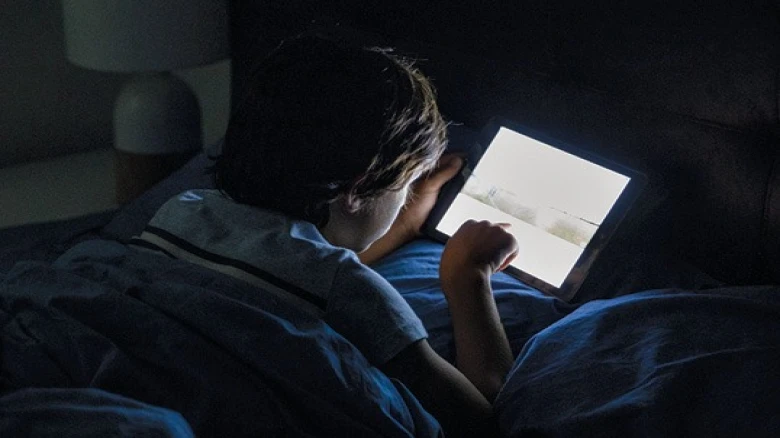Global sleep guidelines have long advised that young people should stop using digital devices an hour or two before bedtime...
Digital Desk: For years, parents have been warned about the dangers of allowing children and teenagers to use digital devices before bed. Many experts have suggested that screens disrupt sleep, leading to poorer sleep quality and shorter sleep durations for young people. However, new research has shed light on this common concern, suggesting that the timing of screen use, particularly while in bed, is what affects sleep the most.
Our recent study found that using screens in bed significantly disrupts sleep compared to using them in the hours before going to bed. This discovery challenges long-standing advice to avoid screen time for an hour or two before bed, as it was the screen used in the bed itself that caused the real harm.
Screen Time and Sleep: Challenging Old Assumptions
Global sleep guidelines have long advised that young people should stop using digital devices an hour or two before bedtime. Instead, they recommend relaxing activities such as reading a book or spending quiet time with family. These recommendations are based on past research that has tried to link screen time to poor sleep quality.
However, these studies often had several limitations. Most of the existing research relied on questionnaires that asked adolescents to estimate their screen use and sleep patterns. While helpful, these self-reports are often inaccurate and do not provide detailed insights into how screens truly impact sleep.
To overcome these limitations, our study took a more hands-on approach. We recruited 85 adolescents, aged between 11 and 14, and asked them to wear body cameras for three hours before bedtime, over four nights. These outward-facing cameras allowed us to accurately track when and how they used their screens. We also placed infrared cameras in their bedrooms to capture overnight screen usage and used actigraphs (wearable devices) to objectively measure sleep.
Bedtime Screen Use Impairs Sleep
Our data revealed that adolescents spent a significant amount of time using their screens while in bed. We divided screen use into two key periods: the two hours before they went to bed and the time they spent in bed before falling asleep. What we found was eye-opening.
Almost all of the adolescents – 99% – used screens in the two hours leading up to bed. More than half continued using screens while in bed, and a third even resumed screen time after their first attempt to go to sleep. Only one participant managed to avoid screens entirely before bed on all four nights.
Surprisingly, screen use in the two hours before bed had minimal impact on sleep. The more critical factor was screen use once they were in bed. This delayed their sleep onset by around half an hour and reduced their overall sleep duration. Engaging in interactive activities, such as gaming or multitasking (using multiple devices at once), had the most detrimental effect. Every additional 10 minutes spent on such activities reduced their sleep by almost nine minutes.
The Impact of Interactive Screen Time
Interactive screen time, such as gaming or multitasking, is particularly disruptive to sleep. Activities that require active engagement stimulate the brain, making it harder for young people to unwind and transition into a state ready for sleep. These types of activities are far more harmful than passive activities, like watching a movie or reading on a device.
Interestingly, passive screen use, such as watching a show, had less of an impact on sleep than interactive use. However, the general recommendation is still to avoid any screen use in bed to minimize distractions and ensure quality rest.
Our research was observational, meaning we looked at the natural habits of adolescents without intervening. The next step is to conduct controlled experiments to determine whether changing screen habits can improve sleep. Nevertheless, our findings suggest that current guidelines on screen use might need revisiting.
While screens have long been considered the main enemy of good sleep, our study shows that the real issue is allowing screens into the bedroom. It’s not just about stopping screen time an hour before bed – it’s about ensuring that screens are kept out of bed entirely. Even if young people use screens right up to bedtime, their sleep may not be significantly affected, provided they avoid using them in bed.
Practical Advice for Parents
The takeaway from this study is clear: keeping devices out of the bedroom can help improve the quality of sleep for adolescents. Parents may want to reconsider enforcing strict screen time bans in the hours leading up to bed and instead focus on preventing device use in bed itself. Encourage alternative bedtime routines that don’t involve screens, such as reading or relaxing activities, to create a healthy sleep environment.
Ultimately, while the relationship between screens and sleep is complex, this new research offers a more nuanced understanding. The real culprit of sleep disruption may not be screen time before bed, but the habit of using devices in bed, which can rob young people of the rest they need.

Leave A Comment